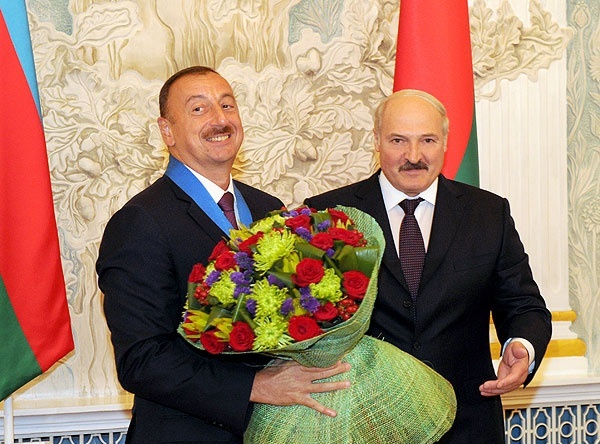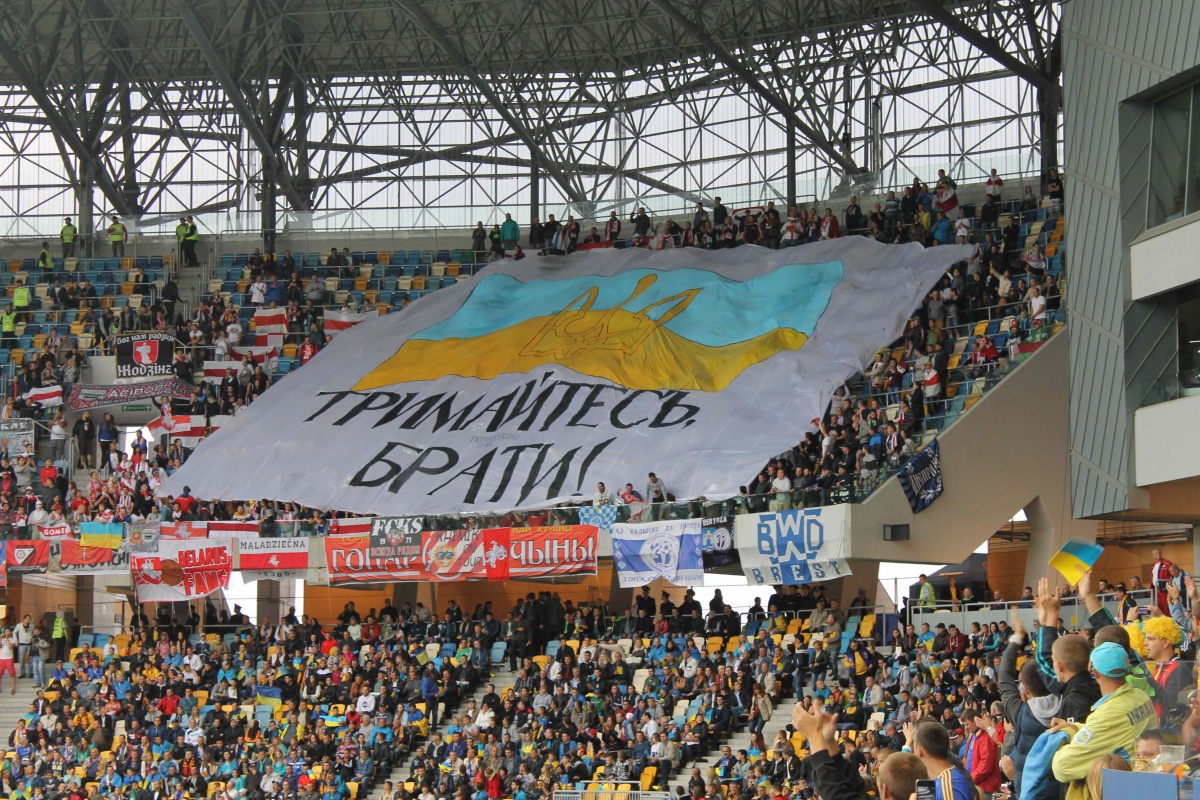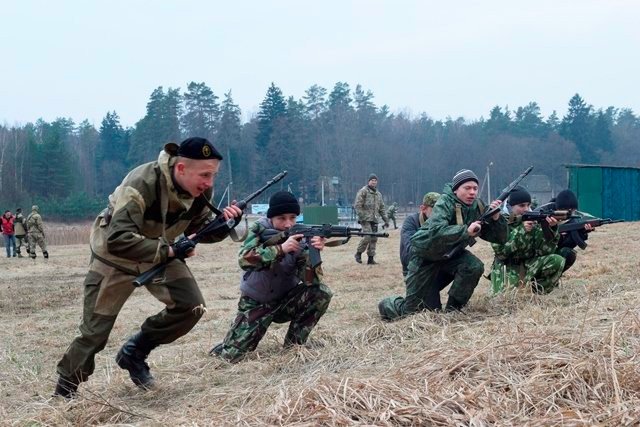Belarus-Turkey Rapprochement: Minsk Refuses to Fight for Kremlin and its Allies

Istanbul summit of the Organisation of Islamic Cooperation. Image: president.gov.by
On 14-15 April Belarusian president Alexander Lukashenka took part in the Istanbul summit of the Organisation of Islamic Cooperation (OIC).
This trip triggered another wave of derisory criticism in the Russian media. Even Kommersant, the liberal Russian daily, wrote about the 'demonstrative rapprochement of Ankara and Minsk' against the backdrop of deteriorating relations between Belarus and Russia.
No wonder Lukashenka while in Istanbul met Turkish President Erdogan, whose relations with Moscow remain hostile after the Turkish air force shot down a Russian jet late last year. The Belarusian president even invited Erdogan to visit Belarus. Belarus' recent refusal to support another Russian ally, Armenia, in its conflict with Azerbaijan makes Lukashenka look disloyal to the Kremlin.
Moscow refuses to accept anything but total support for its policies. Anything else, in the Kremlin's view, is treason and enmity. And Minsk refuses to deal in such black and white categories.
Minsk approaching Erdogan and his friends
Minsk is much more interested in cooperation with Turkey than vice versa. Commenting on recent contact between the Belarusian and Turkish leaders, Kommersant argued that Turkish President Erdogan 'is getting a chance to play the "Belarusian card" in relations with Russia.'
So far, however, Erdogan has displayed no interest in doing that. First, his meeting with Lukashenka was just one of a series of meetings he held with participants of the OIC summit of a comparable level.
Minsk is simply consolidating its ties with the block of conservative Middle Eastern regimes associated with the West Read more
Secondly, Turkish officials made no statements to indicate their intention of playing a 'Belarusian card', nor did the Turkish media display any interest in Lukashenka's visit, only mentioning it on the sidelines.
Joining the OIC as an observer, Minsk is simply consolidating its ties with the block of conservative Middle Eastern regimes associated with the West, like the Arab monarchies of the Persian Gulf, Turkey or Pakistan. It is this block that dominates in the OIC. This foreign policy orientation of Minsk is evident from the meetings Lukashenka had in Istanbul with Qatari Emir Tamim bin Hamad al-Thani and President of Pakistan Mamnoon Hussain.
Just before that, President Lukashenka's son, Viktar, on 29-31 March visited Qatar, another country that has tense relations with Russia and its allies. Viktar openly met high-level officials of that country.
That demonstrative contact contrasted with Minsk sending to Russia's ally, Syrian President Bashar Assad, just a delegation of the Belarusian Communist party, a marginal political force. The Belarusian communists brought Assad a message from the Belarusian leadership and a painting with the ambiguous title Victory Day.
Armenia angry with Belarusian government
Certainly, only few experts noticed these eloquent details of Belarusian foreign policy in the Middle East. Other moves by Minsk, however, attracted the attention of many Belarusian and foreign media outlets, namely its position on the revived conflict around Karabakh.
First, on 2 April the Belarusian foreign ministry responded to the beginning of a new round of hostilities in Karabakh with a statement which underlined the inviolability of international borders and territorial integrity. It irritated Armenia because in that context it meant supporting Azerbaijan, which demands recovery of all the territories that belonged to Soviet Azerbaijan.
Despite a harsh reaction from Yerevan, Minsk on 4 April issued a second statement which implied that Belarusian troops could not be sent to participate in foreign conflicts. That meant a blow to the structure of the Moscow-dominated Collective Security Treaty Organisation (CSTO) which Yerevan had hoped to involve in its conflict with Azerbaijan.
Minsk then drew the final line as the Belarusian parliament adopted – also on 4 April – the new national military doctrine. The norm of not sending Belarusian troops to conflict zones abroad has existed in Belarusian legislation since 1991 and the new doctrine merely reiterated it.
 But in a tense atmosphere, as Yerevan tried to use the CSTO in its confrontation with Baku, Minsk's adoption of the new doctrine was interpreted differently. The Armenian media, such as News.am, saw the rapid adoption of the Belarusian military doctrine as Minsk's response to the new outburst of hostilities in Karabakh.
But in a tense atmosphere, as Yerevan tried to use the CSTO in its confrontation with Baku, Minsk's adoption of the new doctrine was interpreted differently. The Armenian media, such as News.am, saw the rapid adoption of the Belarusian military doctrine as Minsk's response to the new outburst of hostilities in Karabakh.
At any rate, the doctrine indicated Belarusian unwillingness to side with Armenia and undermined the coherence of the CSTO. On 15 April Deputy Foreign minister of Armenia Shavarsh Kocharyan publicly announced that the new Belarusian military doctrine was causing concern for Armenia as a CSTO member. Yet Minsk also knew perfectly well that its moves with regards to Karabakh would also irritate Moscow.
Swimming away from Putin's Titanic?
Moscow, as usual, smells treason, but Minsk is just struggling to find a middle way between Russia and its numerous opponents in the West, former Soviet Union or Middle East. It recognises some interests of Russia which the Belarusian government considers legitimate, and, for instance, continues to participate in the Single air defence system.
At the same time, Belarus is demonstrating that it refuses to follow those of Putin's policies which have already entangled Russia in political and military confrontation with numerous countries. But Minsk resists these Kremlin policies not on ethical or moral grounds.
The Belarusian leadership apparently believes that these Kremlin policies are doomed and based on shaky grounds. Lukashenka knowingly made fun of Russia's 'historic' claims to Crimea, suggesting that it might mean the transfer of most of Eurasia, including Russia, to Mongol administration, since historically Mongols owned these lands.
According to Belarusian political commentator Valer Karbalevich, after Russia fell out with Turkey last November, “Russia, which had been a source of support [for the Belarusian government], turned into a source of problems. It is time to swim away from [drowning Putin's] Titanic.”
That would be a difficult task given the irreplaceable role played by Russia in the Belarusian economy. Nevertheless, Minsk has already succeeded in distancing itself from risky Russian and other countries' endeavours in international politics by referring to international law.
Belarus has denied legitimacy to a variety of different political projects, including the secession of Kosovo, South Ossetia, Abkhazia, Crimea (though with reservations) and now Karabakh.
It has also consistently refused to support major Russian foreign policy moves: not only in some faraway places like the Middle East but also in Eastern Europe where Minsk struggles to maintain good relations with Ukraine and repair relations with the West.
The recent Belarusian moves on Karabakh and its relations with the OIC demonstrate that Belarus continues to move in the same direction.




 An anonymous DNR fighter from Mahilioŭ in an interview with gazeta.ru said that he got involved in the conflict through Russia-backed
An anonymous DNR fighter from Mahilioŭ in an interview with gazeta.ru said that he got involved in the conflict through Russia-backed 
